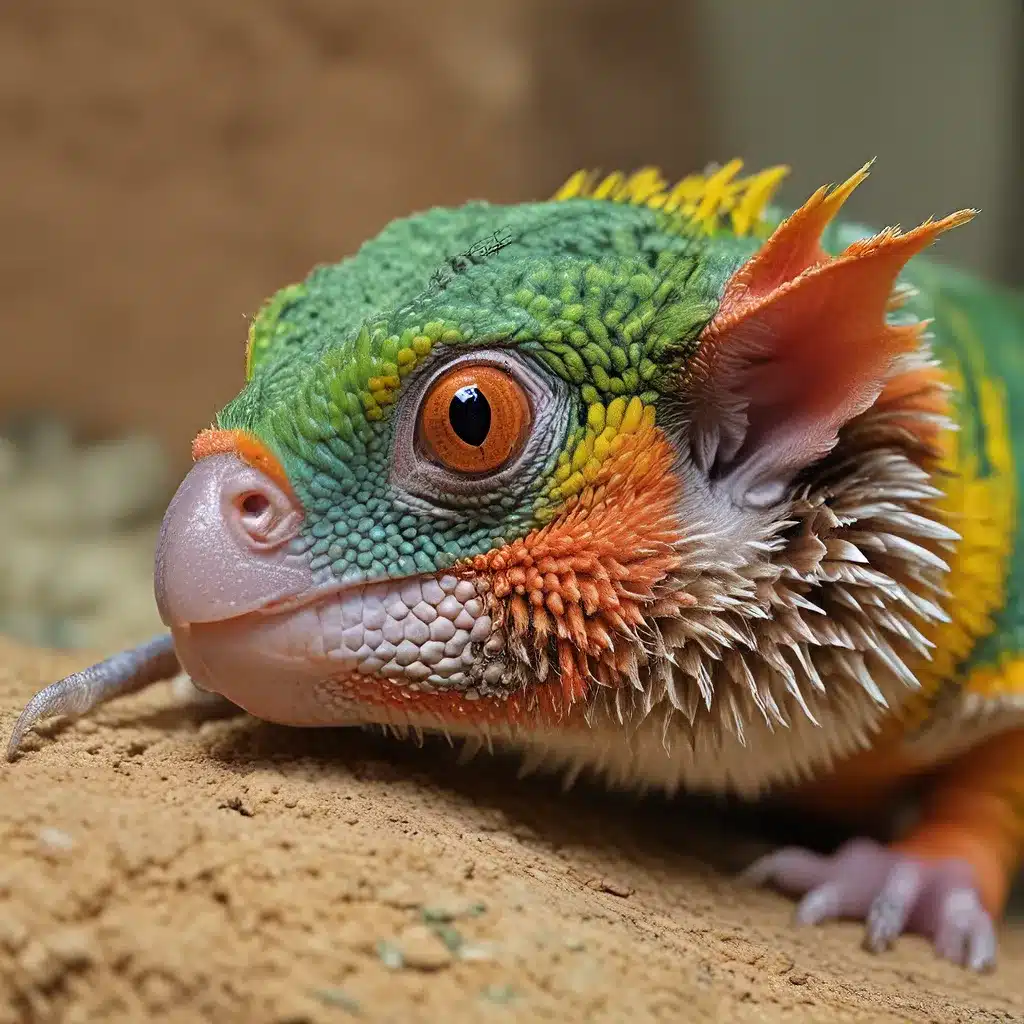
A Call to Conscience: Embracing Ethical Responsibility in Exotic Pet Ownership
As an exotic pet enthusiast, I’ve always been captivated by the allure and mystique of these fascinating creatures. From the graceful movements of a ball python to the vibrant colors of a macaw, there’s something inherently enchanting about the world of exotic pets. But in recent years, I’ve found myself grappling with a nagging sense of unease – a growing awareness that our collective passion for these animals may be inadvertently perpetuating a troubling ethical dilemma.
It’s a topic that has been simmering in the shadows for far too long, but now, it’s time to bring it into the light. Let’s dive deep into the complex and often contentious realm of exotic pet breeding practices, and explore the ethical imperative we all face as responsible caretakers.
Uncovering the Truth: The Science Behind Animal Consciousness
To begin, we must confront a fundamental question that lies at the heart of this debate: Do exotic animals truly possess the capacity for consciousness and the ability to feel pain? For years, this concept has been met with skepticism and dismissal, with many people simply not caring whether factory-farmed animals suffer. But the scientific community has been steadily building a compelling case that challenges this long-held assumption.
As the Executive Director of the Reducetarian Foundation has pointed out, “Most people aren’t concerned with whether factory farmed animals feel pain. They just want to eat what they want when they want.” But if we truly care about behaving ethically, we can no longer ignore the overwhelming evidence that animals, including exotic species, are indeed sentient beings.
In fact, just last month, a group of scientists from various disciplines came together to assert that there is strong scientific support for the idea that animals can experience consciousness. This declaration, known as the New York Declaration on Animal Consciousness, has been signed by nearly 240 scientists from around the world, and the list continues to grow.
The Ethical Dilemma: Rethinking Exotic Pet Breeding
With this newfound understanding of animal consciousness, we must now confront the uncomfortable truth about the exotic pet trade and the breeding practices that fuel it. Can we, in good conscience, continue to breed these animals purely for our own entertainment and enjoyment, without regard for their wellbeing and the potential for suffering?
As one passionate Redditor has eloquently argued, “When it comes to breeding exotic pets, your desires as a hobbyist should not outweigh the wellbeing of the animals involved.” This sentiment echoes a growing chorus of voices within the exotic pet community who are urging us to rethink our breeding practices and prioritize ethical considerations over personal gratification.
It’s a challenging proposition, I know. After all, the thrill of acquiring a rare and unique exotic pet is part of what draws many of us to this world. But as we’ve now learned, these animals are not mere commodities to be traded and bred for our own amusement. They are sentient beings, capable of experiencing pain, stress, and a range of emotional states.
The Ethical Alternatives: Rethinking Our Approach to Exotic Pets
So, what are the alternatives? How can we, as exotic pet enthusiasts, embrace a more ethical approach to our beloved animals? The answer may lie in a fundamental shift in our mindset – from one of ownership and exploitation to one of guardianship and stewardship.
Instead of perpetuating the cycle of breeding and trading exotic pets, perhaps we should focus our efforts on rescuing and rehabilitating animals in need. Support organizations like Golden Exotic Pets that prioritize the well-being of their animals and actively work to reduce the demand for captive-bred exotic pets.
Additionally, we could explore the possibility of transitioning our collections to focus on native species that are better suited to captive environments, or even shifting our passions toward conservation efforts that work to protect exotic animals in their natural habitats.
These may not be easy choices, but they are the ones that I believe we must confront if we are to truly embrace the ethical imperative of responsible exotic pet ownership.
The Path Forward: Cultivating a Culture of Ethical Responsibility
Ultimately, the decision to rethink our approach to exotic pet breeding and ownership is not one that can be made lightly. It requires a deep examination of our own values, beliefs, and biases – a willingness to challenge the status quo and confront the uncomfortable truths that lie beneath the surface.
But I believe that by taking these steps, we have the opportunity to create a new and more sustainable future for the exotic pet industry. One where the wellbeing of the animals takes precedence over our own desires, and where we can truly proud to call ourselves responsible caretakers and guardians.
It won’t be an easy journey, but it’s one that I believe is necessary if we are to uphold the ethical imperative that comes with the privilege of sharing our lives with these remarkable creatures. So, let’s embark on this journey together, and see where it takes us.

